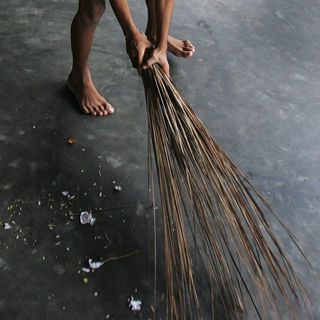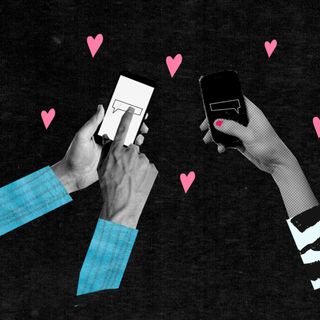
Stop Vilifying Kanika Kapoor. We Gain Nothing From Stigmatizing Illness.
In the fight against Covid19, normalizing the disease is the only way to ensure sick people will seek treatment.

News recently broke that Kanika Kapoor, the singer best known for Roy hit “Chittiyaan Kalaiyaan” and Ragini MMS hit “Baby Doll,” tested positive for Covid19. Within hours, healthcare workers, government officials, and celebrity gossip enthusiasts began “contact tracing” her — tracking Kapoor’s movements since she entered India on March 9. As news spread that she had traveled to Lucknow, attended a dinner and several parties with influential people, and continued to socialize normally, the tide of public opinion turned against Kapoor swiftly. Public scorn only grew fiercer as people speculated that Kapoor must have flouted government directives about public safety.
In less than a day, the broadcast media was referring to Kapoor as “Corona Killer” on live TV, and the print media was quoting people calling her a criminal who put the Indian President and several members of Parliament at risk of contracting the coronavirus. She responded by telling the Times of India, in an exclusive interview, that she is being held in an isolation ward in a Lucknow hospital, not getting food or water, and being verbally abused by staff. “I was the one who pestered the authorities, who I felt were taking things lightly. It took them three days to send someone to collect my sample and test it. From Monday till then, I had confined myself to my room. The moment I felt sick, I called up the authorities. So tell me, who’s been lax?” Kapoor told TOI. “I want to tell people that I’m not the irresponsible person I’m being made to look like.”
Kapoor is being accused of knowingly putting other party-goers at risk, but she herself says she was given no instructions to self-quarantine by airport officials when she first came to India. The public will never know the details of what Kapoor was told when, and whether she ignored directives after she arrived. But it doesn’t matter. What matters now is that the government, media, and public not shame Kapoor for having Covid19, and give her the care she deserves.
Related on The Swaddle:
The Latest on Coronavirus Cases In India
Kapoor is not the only one being vilified for a perceived lack of responsibility and accountability. She even has an FIR filed against her for negligence. Across the nation, unassuming people who are trying to deal with their symptoms have either been reported to the police by neighbors or had FIRs lodged against them for failing to report recent travel. Citizen vigilantes with camera phones have posted videos of people they think have the coronavirus, seeking to shame them on social media. These behaviors, while stemming from the panic that the current pandemic has caused, are creating an atmosphere of stigma and fear that otherizes people who have contracted the coronavirus, especially those who might not even know it yet.
From what we can gather so far, Kapoor was one of those asymptomatic people who could have communicated Covid19 to others unknowingly. According to a study out of Kyoto University, 17.9% of people with the coronavirus are asymptomatic. And because of our healthcare system’s failure to accommodate asymptomatic people in its testing ambit, it’s possible many are currently infecting others, oblivious to their status. If we keep going at this rate, it’s possible every single person will get the coronavirus at some point in the near future, so we might as well stop associating shame with the diagnosis right now.
Our only chance at beating a global pandemic is frequent, transparent, widespread testing. In Singapore, widely lauded as one of the biggest public health success stories of this crisis, testing protocols are geared towards transparency: everyone has access, on a public database, to the addresses of everyone who has tested positive and is under home quarantine. When a positive result is open and available – and not a source of social shame – societies are finding it easier to isolate cases and resolve them.
Stigmatizing illness is just the edge of a dystopian rabbit hole. At first, people will avoid telling friends and family if they interacted with someone who is feeling sick. They will push the possibility of infection far from their minds, thinking, as people so often do, that this is someone else’s problem. Today, it is the out-of-touch, spoiled celebrity, but soon it becomes the neighbor who eats meat, or the co-worker who practices a particular religion. In the meantime, while trying to avoid the scarlet letter of a Covid19 infection, people will continue on with their routines, and continue infecting many others along the way.
When symptoms do appear or worsen, people will avoid calling a doctor, for fear that they may in fact need a test. If a positive test result is the difference between normal life and total social ostracism, how many people will choose the latter? Some people will suffer through the sickness in their homes, and not seek much-needed medical attention, because of the sheer terror of what vilification awaits a Covid19 patient.
Related on The Swaddle:
The Coronavirus Pandemic Holds a Mirror to Our Culture’s Shameless Classism
As stigma spreads, so does misinformation and so do rumors. The more obfuscation and confusion there is around a terrifying illness, the easier it is for fake news to spread. And a cycle of fear, stigma, misinformation, and confusion escalates.
In this escalation, people lose sight of the facts: that the coronavirus is currently relatively contained in India. That we have the benefit of hindsight from having seen the mistakes other countries have made in handling the pandemic. That we will soon have widespread access to testing. That frequent and widespread testing – combined with social distancing and careful self-quarantine for those with symptoms – are effective tools at our disposal for battling this pandemic. And that we only have one chance to use these tools, but it has to be now. And if we want this to work, we cannot treat our sick like criminals.
Rajvi Desai is The Swaddle's Culture Editor. After graduating from NYU as a Journalism and Politics major, she covered breaking news and politics in New York City, and dabbled in design and entertainment journalism. Back in the homeland, she's interested in tackling beauty, sports, politics and human rights in her gender-focused writing, while also co-managing The Swaddle Team's podcast, Respectfully Disagree.
Related


The Coronavirus Pandemic Holds a Mirror to Our Culture’s Shameless Classism
